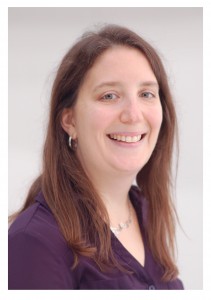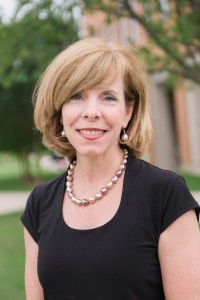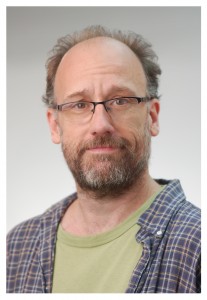“Host-Pathogen Interactions in a Changing Ocean: from Disease Emergence to Solutions?”
Disease is a natural part of healthy marine ecosystems, however, the number and severity of marine diseases is increasing and has been linked to climate change and other anthropogenic factors. We often have a poor understanding of causative agents and infection dynamics. This baseline information is critical to assess the synergisms between human drivers and disease outbreaks, and ultimately better manage disease outbreaks. Disease emergence and epizootics have the capacity to alter both natural and aquaculture-based systems. I will emphasize two host-pathogen systems we are currently focused on in my laboratory: Ostreid herpesvirus 1 infections in Pacific oysters and Labyrinthula infections of eelgrass, Zostera marina. I will discuss aspects of each host-pathogen relationship including pathogen discovery, diagnostics, and spread as well as potential disease management strategies.
Dr. Colleen Burge is an Assistant Professor at the Institute of Marine and Environmental Technology with dual appointments at University of Maryland  Baltimore County (UMBC), Department of Marine Biotechnology and the University of Maryland Baltimore, Department of Immunology & Microbiology. Colleen is a native to the US West Coast where she grew up on the shores of Hood Canal learning marine ecology from a young age. Colleen received her BS (2002) and PhD (2010) in Aquatic & Fishery Sciences at the University of Washington. Colleen held two postdoctoral positions; her first was in the Department of Ecology & Evolutionary Biology at Cornell University and the second in the School of Aquatic & Fishery Sciences at the University of Washington. Colleen’s research program, the “Aquatic Animal Health lab” focuses on marine host-pathogen-environment interactions including disease ecology, organismal physiology and immunology, and development of disease diagnostics. Members of the Aquatic Animal Health lab focus on both temperate and tropical host-pathogen systems, answering both fundamental questions in microbial ecology as well as disease management strategies in a changing ocean. Colleen enjoys mentoring and interacting with students of diverse backgrounds including high school, undergraduate, graduate, and post-graduate. Colleen is a member of the NSF funded Research Coordination Network “RCN: Evaluating the impacts of a changing ocean in management and ecology of infectious marine disease.” In 2016, Colleen was a recipient of a UMBC summer faculty fellowship and an Ifremer (Institut Français de Recherche pour l’Exploitation de la Mer) Scientist Fellowship to conduct collaborative research in conjunction with Ifremer scientists on “Biomarkers of disease resistance to an oyster killing virus.”
Baltimore County (UMBC), Department of Marine Biotechnology and the University of Maryland Baltimore, Department of Immunology & Microbiology. Colleen is a native to the US West Coast where she grew up on the shores of Hood Canal learning marine ecology from a young age. Colleen received her BS (2002) and PhD (2010) in Aquatic & Fishery Sciences at the University of Washington. Colleen held two postdoctoral positions; her first was in the Department of Ecology & Evolutionary Biology at Cornell University and the second in the School of Aquatic & Fishery Sciences at the University of Washington. Colleen’s research program, the “Aquatic Animal Health lab” focuses on marine host-pathogen-environment interactions including disease ecology, organismal physiology and immunology, and development of disease diagnostics. Members of the Aquatic Animal Health lab focus on both temperate and tropical host-pathogen systems, answering both fundamental questions in microbial ecology as well as disease management strategies in a changing ocean. Colleen enjoys mentoring and interacting with students of diverse backgrounds including high school, undergraduate, graduate, and post-graduate. Colleen is a member of the NSF funded Research Coordination Network “RCN: Evaluating the impacts of a changing ocean in management and ecology of infectious marine disease.” In 2016, Colleen was a recipient of a UMBC summer faculty fellowship and an Ifremer (Institut Français de Recherche pour l’Exploitation de la Mer) Scientist Fellowship to conduct collaborative research in conjunction with Ifremer scientists on “Biomarkers of disease resistance to an oyster killing virus.”
Workshops:

